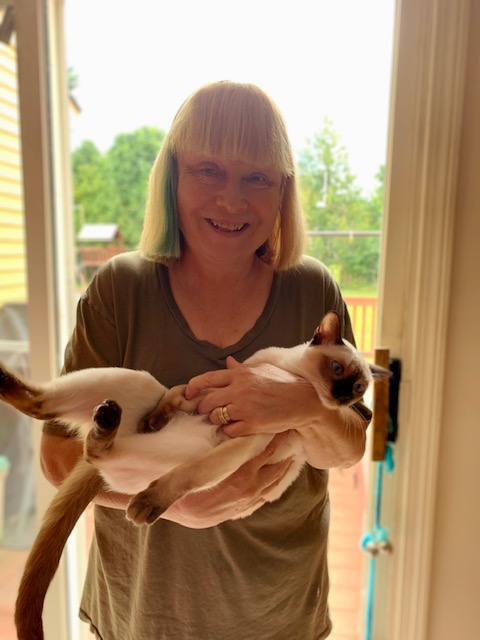by Rachael Lynch
I know I am not the only woman diagnosed with breast cancer to find herself parachuted into a pre-existing narrative, one that contains a set of predetermined options governing attitude and behavior. It is bad enough to lose control of one’s body, but for me, the challenges to the authorship of my own story were just as difficult to navigate. I rapidly discovered that I was supposed to embrace one of two preferred personae: the doughty warrior survivor or the ennobled saint whose diagnosis actually enriches her life, giving it extra meaning. Any visit I paid to online sites reinforced these two options, so much so that I rapidly decided not to go online except to research practical questions like when is the best time to take Tamoxifen.
I am a practical sort, and my responses, once I got past the shock and “why me?” disbelief sharply diverged from the preferred two options. First, I had a hard time processing that I actually had cancer. It just did not seem possible. An invasive ductal carninoma had the nerve to be lurking within my left breast. I had had other small encounters, for example with a very early stage melanoma on my leg that the dermatologist simply excised. One and done. But this diagnosis was different. It was going to disrupt my life and I was pretty angry about it. So until more information was forthcoming I launched into hypothethetical micromanagement mode. Suppose I needed a mastectomy? I am a petite woman with large breasts. So how could I have just one lopped off? That would look ridiculous. Maybe they should take them both for the sake of symmetry, I decided. Luckily I proved to be one of the fortunate ones; my cancer was diagnosed at a very early stage, and the recommended course of treatment was lumpectomy followed by six weeks of radiation and five years of Tamoxifen. I felt as though I had escaped the whirlwind, as indeed I had, and nothing seemed too bad after that.
There is a vast difference between a sense of personal enrichment and an acknowledgement of luck. Nobody who is going to recover can spend every weekday for six weeks in the company of other cancer patients and not feel lucky. I suffered a great deal from imposter syndrome as I sat in in the radiation oncology waiting room day after day, observing the suffering and anguish of so many others so much worse off than I. Some uterine cancer patients needed to guzzle immodium before every radiation treatment just to keep their bowels from enacting total rebellion. Others were receiving palliative care. That part of the experience was really awful, although I feel selfish even admitting how much it bothered me. My sense that I really barely had a right to be there was so powerful that one day I was utterly perplexed when I was presented with a lovely little bunch of daffodils as I entered the waiting room. Ah, Daffodil Day. Ah, I am a cancer patient. Oookay…..I get it now.
Cancer treatment exists in its own quirky alternative universe with its own vocabulary, even a set of distinctive tattoos. On a nude beach we breast cancer survivors could pick each other out in a heartbeat. Susan Sontag nailed it with her concept of the Kingdom of the Sick. But dwelling there for me was not a battle, and it was certainly not an enlightening, growthful experience. It was more a series of shocks and encounters, some in retrospect funny, many difficult, and some very sad. There is something about the cancer experience that brings out the storyteller in people, I found. Radiation treatment is set up so that each person goes at the same time every day, and so you rapidly get to know the people scheduled before and after you very well indeed. We started by narrating our own illnesses: what type of cancer we had, what type of protocol we were undergoing. Maybe that part had to do with our regaining authorship of our narratives, telling the story of our actual experiences, not the prescribed and expected ones. But I also remember there was one tiny elderly woman recovering from uterine cancer who was a truly gifted raconteur, and her situation seemed to enhance her narrative skills. I could never thank her enough for the way in which she enlivened our waits and raised our spirits through her stories. She had seven sons (really), and the seventh was a healer. So she was absolutely certain that she was going to recover. Other family members spoke to the dead. Sometimes we would go back to the waiting room after our treatments so she could finish whatever story she was telling that day. The little cabal split up and all went our own ways when our treatments were over, but I hope she is still out there basking in her son’s healing vibes and telling her stories.
